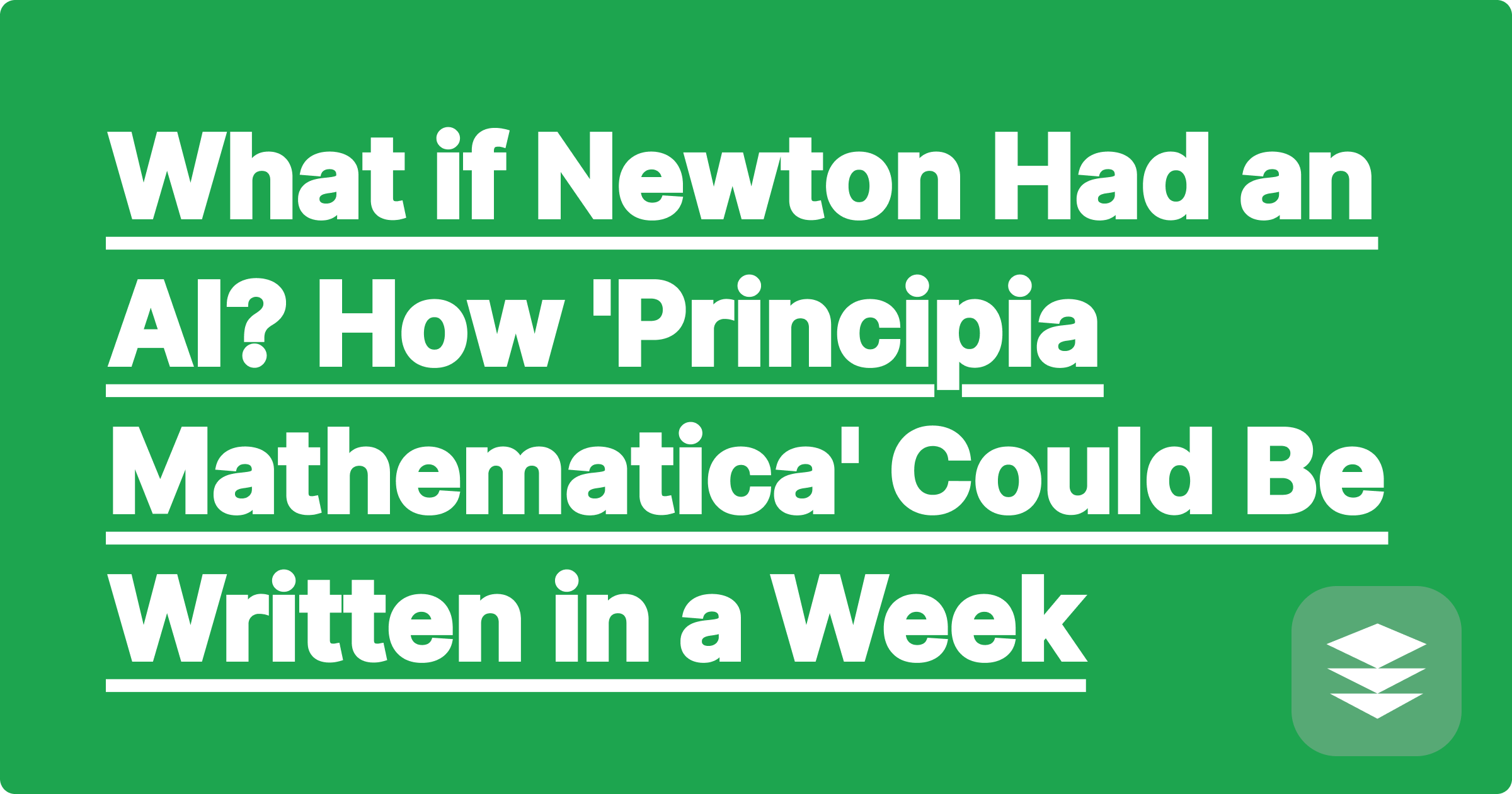
The story is legendary. In 1665, as the Great Plague ravaged London, Cambridge University shut down, sending a young Isaac Newton back to his family home. In the following 18 months of intense, isolated focus—his "annus mirabilis" or "year of wonders"—he laid the groundwork for modern science. He developed calculus, explored optics, and formulated the law of universal gravitation. The result, years later, was his monumental work, Philosophiæ Naturalis Principia Mathematica. It took him decades of thought and painstaking manual calculation.
But what if he had a modern AI assistant? What if, during that lockdown, Newton had access to a GPAI Solver and Cheatsheet? This fun thought experiment isn't just about newton vs ai; it's about understanding the sheer scale of productivity that modern students now have at their fingertips.
Newton's genius wasn't just in seeing the apple fall; it was in connecting it to the motion of the moon. This required inventing a new mathematical language: calculus.
The Principia is filled with complex geometric proofs and astronomical calculations. The manual labor involved was immense.
[Image: A montage showing a 17th-century drawing of Newton on one side, and the modern GPAI interface on the other, with an arrow connecting them labeled "Productivity Multiplier". Alt-text: A visual showing the concept of Newton vs AI in scientific discovery.]
The point of this exercise is not to diminish Newton's incredible genius. It is to highlight how much of that genius was spent on tasks that are now automatable. The a-ha moments of insight were his, but the tedious work of calculation and transcription could have been delegated. An AI can't have the world-changing insight, but it can accelerate the process of exploring and documenting that insight at a breathtaking speed.
You have a tool that the greatest scientific mind in history could only dream of. The GPAI Solver on your laptop can perform more calculus in a second than Newton could in a month. The GPAI Cheatsheet can organize more information than his entire library. By learning to use these tools effectively, you're not just getting homework help; you're leveraging a superpower that can dramatically amplify your own ability to learn, discover, and create.
A: No. AI models learn from existing data. They could not have created calculus from nothing. However, if given the foundational problems Newton was struggling with, an AI could have found the mathematical patterns and rules—the derivative and integral—as the logical solution to those problems, acting as a powerful discovery partner.
A: On the contrary. By freeing us from the drudgery of manual calculation, AI allows us to spend more time on higher-level, creative thinking—asking the "what if" questions, forming new hypotheses, and connecting disparate ideas. Newton spent months calculating a single orbit; you can do it in seconds and spend the rest of the day asking, "What if gravity worked differently?"
Newton famously said, "If I have seen further, it is by standing on the shoulders of Giants." For students today, AI is that giant. It gives you an unprecedented ability to process information, test ideas, and accelerate your learning. The only question is: how far will you choose to see?
[Start using the tools Newton would have envied. Try the GPAI Solver and Cheatsheet today. Sign up for 100 free credits.]
What if Newton Had an AI? How 'Principia Mathematica' Could Be Written in a Week
Could You Run a Simulated Mars Colony Using an Engineering AI Solver?
Teach Me Poker': Can Game Theory AI Explain Winning Strategies?
What if Your Entire Degree Was an Open-Book Exam? How to Prepare with AI.
Re-writing History: What if the Titanic Was Designed with FEA and AI?
The Psychology of the 'Humanizer': Why We Trust 'Natural' Language More
A Day in the Life of a GPAI Engineer: The Problems We Solve for You
We Fed Our AI the Toughest 'Unsolvable' Math Problems. Here's What It Did.
The Carbon Footprint of Your Brain vs. AI: An Energy Efficiency Comparison
Bad Handwriting' Hall of Fame: Can Our AI Read Your Professor's Scrawl?